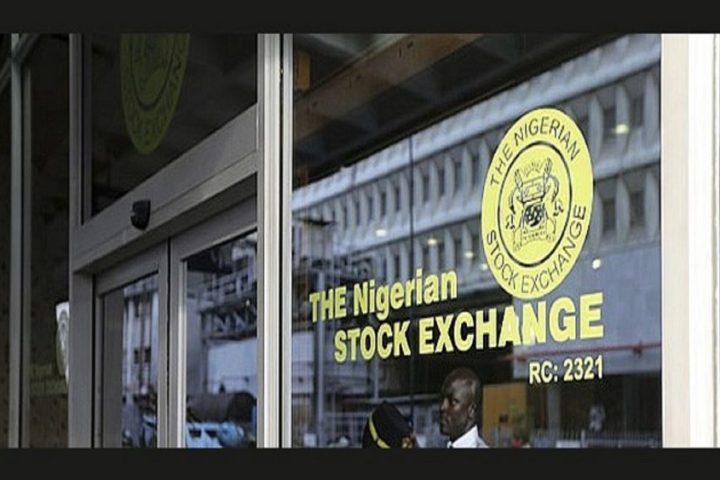The IMF and World Bank Debate: Can Nigeria Find Its Own Path?
Recent statements from former INEC Chairman, Professor Attahiru Jega, have set off a nationwide debate on the Nigerian government’s approach to economic policy. His advice, delivered at the Chartered Institute of Directors of Nigeria (CIoD) Annual Directors’ Conference, urges caution against uncritical adoption of recommendations from global institutions like the International Monetary Fund (IMF) and World Bank.
“While it’s beneficial to engage with institutions like the World Bank and IMF, we must not swallow what they bring to us hook, line, and sinker,” Jega said. His comments echo a growing sentiment among Nigerians who believe their government should prioritize policies that directly serve the people.
Join our WhatsApp ChannelNigerians Speak Out on IMF and World Bank’s Role
Across Nigeria, citizens are voicing concerns over recent economic shifts that many associate with IMF and World Bank influence. Reforms like the fuel subsidy removal and naira floatation have stirred controversy, and some see these changes as measures that primarily benefit foreign interests.
In an interview, Lagos-based entrepreneur and mother of two, Adesuwa Omotayo, shared her frustrations: “Removing the fuel subsidy hit my family hard. Prices are going up everywhere, and I’m not seeing any improvement in services or infrastructure. Is this what progress is supposed to look like?”
Similarly, 27-year-old graduate student Adeyemi Ojo from University of Lagos(UNILAG) expressed his doubts about Nigeria’s alignment with foreign economic models. “Look at how different our needs are. How can policies crafted by outsiders address local realities like our unemployment rate or food insecurity?” Ojo questioned.
Expert Views: Is Nigeria Losing Its Economic Autonomy?
Experts and economists have also weighed in, offering a nuanced view of Jega’s warning. Dr. Funke Oladipo, an economist with over a decade of experience in development policy, explained that IMF and World Bank recommendations often come with conditions that might not align with Nigeria’s unique challenges. “These institutions offer guidance based on a global framework,” Dr. Oladipo explained. “But Nigeria’s economic reality doesn’t always fit this mold. Blindly adopting these policies risks ignoring local complexities and can undermine economic independence.”
Former Central Bank advisor Charles Anene pointed out that while engaging with the IMF and World Bank can provide valuable insights, an over-reliance on their guidance could lead to dependency. “Every nation is looking for a tailored economic path that serves its people. Nigeria must find that path without compromising its autonomy,” Anene stated. He urged Nigerian leaders to approach international partnerships with a critical eye, emphasizing that long-term benefits should outweigh any immediate fiscal relief.
IMF’s Stance on Nigeria’s Recent Reforms
The IMF itself has recently attempted to clarify its role in Nigeria’s economic changes. Abebe Selassie, IMF’s African Region Director, addressed concerns by stating that recent policies like the fuel subsidy removal were domestic decisions, not IMF mandates. “Our role in Nigeria is primarily consultative,” Selassie remarked, suggesting that while the IMF may offer guidance, the Nigerian government ultimately controls its policy choices.
However, the clarification has not entirely reassured Nigerians. Some remain skeptical, arguing that IMF consultations still carry substantial influence. Femi Olatunde, an Abuja-based activist, voiced this skepticism: “Even if the IMF isn’t directly making decisions, their influence is hard to ignore. These recommendations shape the policies that affect our daily lives.”
The Call for Leadership Reform
Beyond economic policy, Jega also emphasized the urgent need for a stronger leadership recruitment process in Nigeria. “The major challenge facing Nigeria is that many leaders are unprepared for leadership,” he stated. According to Jega, a leadership crisis is at the heart of Nigeria’s economic and social struggles. He believes that without prepared, people-oriented leaders, the country will continue to face setbacks, regardless of which policies are implemented.
READ ALSO: IMF Warns Global Debt Crisis Could Threaten Nigeria’s Economic Stability
His call resonates with Nigerians who have witnessed multiple governments struggle to bring stability and growth. With the ongoing economic hardships, citizens are questioning the ability of current leaders to address real issues. Amina Salisu, a school teacher in Lagos, shared her view: “If our leaders are not ready, how can they truly represent our needs? We need leaders who understand what ordinary Nigerians face daily.”
A People-First Approach for Economic Independence
Jega’s message also emphasized the importance of “people-oriented development processes.” He urged Nigerians to prioritize democratic governance and scrutinize external advice, particularly when it comes to policies that could influence Nigeria’s long-term economic well-being.
Some believe this “people-first” approach could allow Nigeria to break free from over-dependence on foreign economic models. Professor Obinna Akinwale, a political economist, noted that pursuing a people-first approach means adopting policies that directly benefit the majority. “Nigeria’s leadership should consider policies that reflect our unique economic conditions, not what works for economies with vastly different structures,” he explained.
Looking Forward: Can Nigeria Balance Global Advice with Local Realities?
The question remains: how can Nigeria strike a balance between international cooperation and national priorities? Jega’s comments and the public’s response highlight a growing demand for a self-sustaining economic approach. With many Nigerians affected by the recent reforms, the call for tailored solutions is louder than ever.
According to Jega, part of the answer lies in engaging with institutions like the IMF and World Bank on Nigeria’s terms, rather than allowing external pressures to dictate national policy. He argued that selective engagement would protect Nigeria’s long-term interests. “Engagement is not the problem,” Jega emphasized, “but it should be on our terms, not theirs.”
Conclusion: Toward a Nigerian Economic Vision
As Nigeria faces critical decisions about its economic future, Jega’s remarks have become a rallying cry for both citizens and experts seeking reform. Many believe that for Nigeria to achieve sustainable growth, it must embrace policies rooted in local realities, led by informed leaders who prioritize the people. Whether or not Nigeria can resist the “hook, line, and sinker” approach to global economic advice remains uncertain, but the nation’s call for a home-grown vision is clearer than ever.
Emmanuel Ochayi is a journalist. He is a graduate of the University of Lagos, School of first choice and the nations pride. Emmanuel is keen on exploring writing angles in different areas, including Business, climate change, politics, Education, and others.



















Follow Us